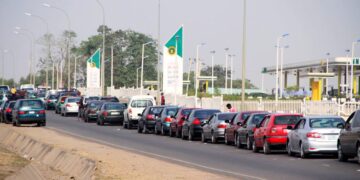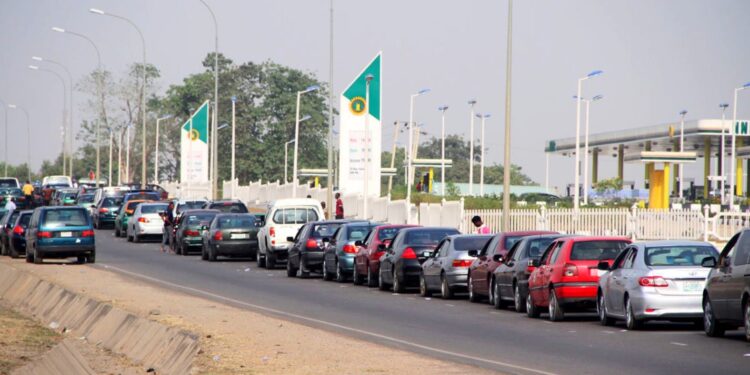By John Ikani
The lingering fuel scarcity in Nigeria has taken a turn for the worse with the Major Oil Marketers Association of Nigeria (MOMAN) attributing the crisis to high costs of vessels and inadequate trucks for transporting petroleum products from depots to filling stations across the country.
The association, which represents major fuel marketers in Nigeria, issued a statement on Friday explaining that these high logistics and exchange rate costs continue to put pressure on their operations with ripple effects on the pump price and long queues at filling stations.
The fuel queues, according to MOMAN, are caused by exceptionally high demand and bottlenecks in the fuel distribution chain.
“The major cause is the shortage and high (US Dollar) costs of daughter’s vessels for ferrying product from mother vessels to depots along the coast,” MOMAN said in a statement.
“Next is the inadequate number of trucks to meet the demand to deliver products from depots to filling stations nationwide.”
MOMAN, in its statement, sympathized with Nigerians over the challenges they are facing in the purchase of petrol at filling stations across the country.
The association also noted that its members have agreed to extend depot loading hours and keep strategically situated service stations open for longer hours to ease access to fuels for customers.
However, MOMAN stressed that a final resolution to these challenges will be the full deregulation of the petroleum downstream sector to encourage liberalization of supply and long-term investments in distribution assets.
The association urged the Nigerian government to work towards this end goal.
In recent months, especially since the government announced plans to remove fuel subsidies, Nigerians have had a hard time getting petroleum products at filling stations.
The scarcity has persisted despite the government’s repeated claims it had enough petroleum products in stock.
In many parts of the country, operators of filling stations sold at prices higher than the government’s pump price.
As the fuel crisis continues to deepen, the Nigerian government has denied approving any increase in the pump prices of petrol across the country.
The Minister of State for Petroleum Resources, Timipre Sylva, however, acknowledged that the crisis persists as Nigerians continue to queue for fuel in filling stations amidst reports of increase in the pump price of petroleum products.




































